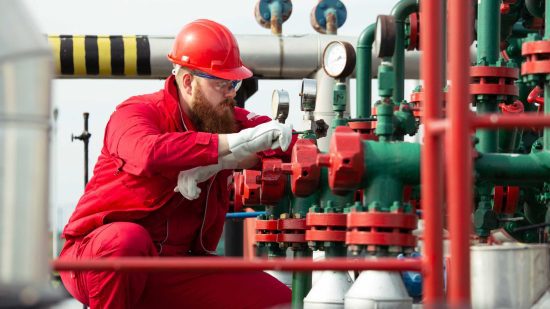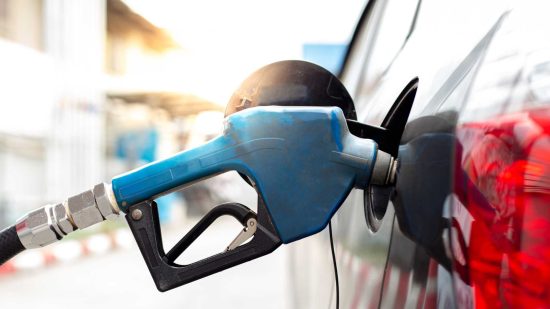
In today’s competitive business landscape, effective gas management is crucial for companies across various industries. From transportation and logistics to manufacturing and construction, businesses must strike a delicate balance between cost, efficiency, and sustainability in their gas management practices. In this detailed and informative blog post, we’ll explore essential strategies from https://businessenergycomparison.com/business-gas/ for mastering the art of business gas management, providing you with the knowledge and tools required to optimize fuel consumption and drive success in your organization.
Understanding the Basics of Gas Management

Gas management encompasses a wide range of activities, including fuel procurement, storage, dispensing, consumption monitoring, and reporting. Effective gas management requires a comprehensive understanding of these processes, as well as the ability to identify and implement best practices to optimize fuel use and minimize costs. The most common fuel sources used in gas management include natural gas, propane, and diesel. These fuels can be procured from local vendors, utility companies, or even directly from oil and gas producers.
Additionally, businesses must consider factors such as price volatility, delivery times, and storage capacity when deciding which fuel sources to use. Gas management also involves proper gas storage and dispensing practices. This includes the selection of suitable tanks and pumps for storing and dispensing fuels, as well as proper maintenance to ensure that equipment remains in top condition. Gas consumption should be accurately monitored and documented in order to accurately calculate usage and maximize efficiency.
Key Components of Gas Management

- Fuel Procurement: This involves sourcing and purchasing fuel from suppliers, negotiating contracts, and managing relationships with vendors.
- Fuel Storage: Proper storage is essential to ensure the quality and safety of fuel supplies. This includes managing inventory levels, adhering to regulatory requirements, and implementing regular maintenance and inspection schedules.
- Fuel Dispensing: Efficient fuel dispensing processes are crucial to avoid wastage, theft, and unauthorized access. This includes monitoring and controlling access to fueling stations and ensuring accurate record-keeping.
- Fuel Consumption Monitoring: Regularly tracking fuel consumption patterns can help identify inefficiencies and opportunities for improvement. This includes analyzing data on vehicle performance, driver behavior, and route optimization.
- Reporting and Compliance: Ensuring compliance with environmental regulations and industry standards is a critical aspect of gas management. This includes accurate reporting on fuel consumption, emissions, and other relevant metrics.
Optimizing Fuel Consumption: Strategies for Success
Achieving optimal fuel consumption requires a proactive approach to identifying inefficiencies and implementing targeted solutions. Here are some key strategies to consider:
Regularly Monitor and Analyze Fuel Consumption Data
By collecting and analyzing data on fuel consumption, businesses can identify trends, patterns, and areas for improvement. This includes monitoring vehicle performance, driver behavior, and route efficiency to pinpoint opportunities for reducing fuel usage and costs.
Implement Fuel-Efficient Driving Practices

Fuel usage is significantly influenced by driver behaviour. Encourage fuel-efficient driving practices, such as maintaining consistent speeds, avoiding rapid acceleration and braking, and minimizing idling time. Providing regular training and incentives for drivers who demonstrate fuel-efficient behaviors can help reinforce these habits and drive tangible results.
Optimize Routes and Schedules
Route optimization can significantly impact fuel consumption. By planning efficient routes that minimize travel distances and avoid traffic congestion, businesses can reduce fuel usage and associated costs. Additionally, optimizing delivery schedules to avoid peak times can help improve fuel efficiency.
Maintain Vehicles Regularly
For optimal fuel economy, proper vehicle maintenance is crucial. Regularly servicing vehicles, including timely oil changes, tire pressure checks, and engine tune-ups, can help ensure peak performance and fuel efficiency.
The Role of Fuel Management Software

Fuel management software can play a pivotal role in streamlining gas management processes and driving efficiency improvements. These platforms offer a range of features designed to help businesses monitor and control fuel consumption, including:
- Real-time tracking of fuel inventory levels
- Automated alerts for low fuel supplies or potential theft
- Integration with GPS systems for route optimization and vehicle tracking
- Customizable reporting and analytics capabilities
- Compliance management tools to ensure adherence to environmental regulations and industry standards
By leveraging fuel management software, businesses can gain valuable insights into their gas management practices, identify areas for improvement, and implement targeted strategies to optimize fuel consumption and reduce costs.
Compliance Considerations: Navigating the Regulatory Landscape

Compliance with environmental regulations and industry standards is a critical aspect of gas management. Businesses must stay informed about the latest regulatory requirements and ensure their practices align with these expectations. Key compliance considerations include:
- Adhering to emissions standards, such as those set by the Environmental Protection Agency (EPA) or the European Union’s Euro standards
- Implementing spill prevention, control, and countermeasure (SPCC) plans to minimize the risk of fuel spills and environmental contamination.
- Ensuring proper storage and handling of fuel supplies to meet gas safety regulations and guidelines
Balancing Cost, Efficiency, and Sustainability in Fuel Management

Achieving a balance between cost, efficiency, and sustainability in fuel management requires a comprehensive approach that considers both short-term and long-term objectives. Businesses must prioritize investments in fuel-efficient technologies and processes while also remaining committed to meeting environmental standards and reducing their carbon footprint. By implementing best practices and leveraging fuel management software, businesses can optimize their gas management processes and ensure sustainable, cost-effective performance.
Gas management is a complex process that encompasses many different activities, from fuel procurement and storage to consumption monitoring and reporting. To ensure success in this area, businesses must prioritize investments in fuel-efficient technologies, optimize delivery routes, reinforce fuel-efficient driving practices, and stay compliant with environmental regulations. Fuel management software can help streamline gas management processes and provide valuable insights into consumption patterns. By balancing cost, efficiency, and sustainability in their fuel management strategies, businesses can ensure cost-effective performance while also reducing their carbon footprint.
In Conclusion
Mastering the art of business gas management is critical for companies looking to optimize fuel consumption, minimize costs, and contribute to a more sustainable future. By understanding the basics of gas management, implementing effective strategies, and leveraging available tools and resources, businesses can achieve success in this essential aspect of their operations. By prioritizing both efficiency and sustainability, companies can demonstrate their commitment to environmental stewardship and drive long-term growth and success.
Additionally, most businesses should consider engaging a professional fuel management consultant or provider to ensure their gas management practices are up-to-date and optimized for cost savings and sustainability. By investing in experienced professionals, companies can gain access to specialized knowledge, resources, and insights that can help drive tangible results.












